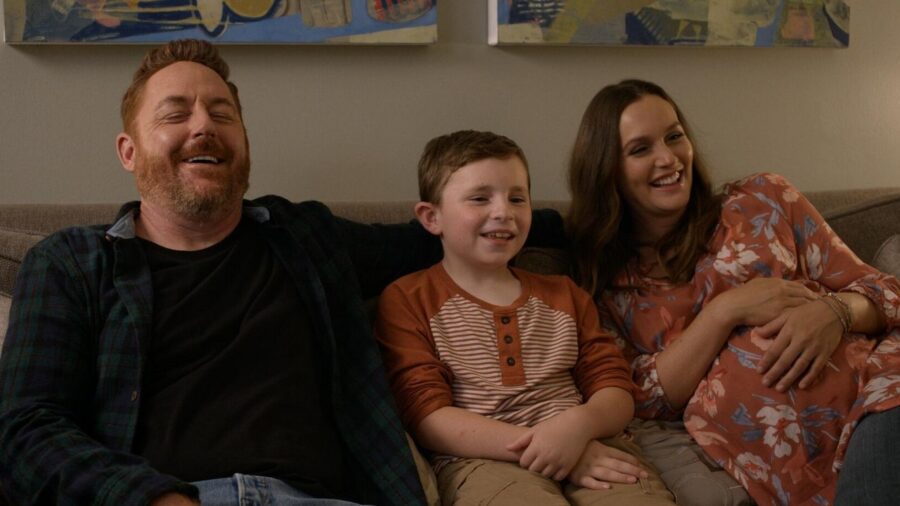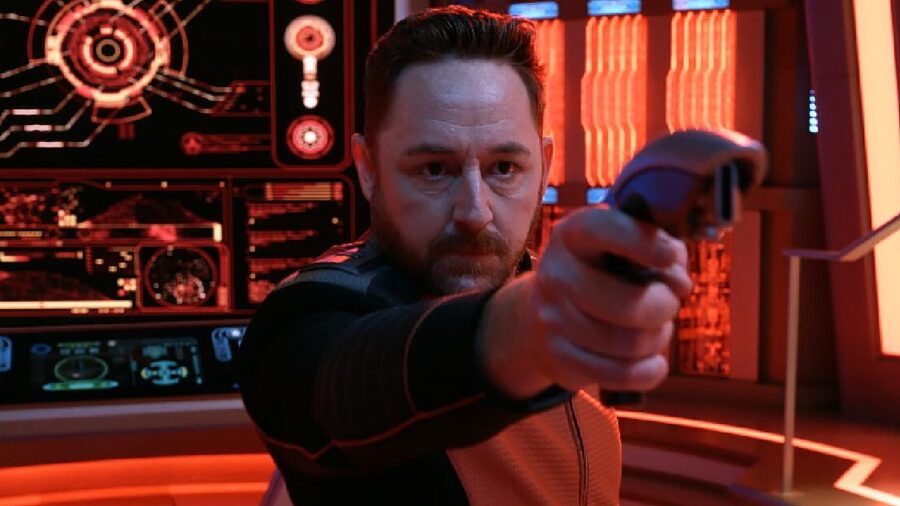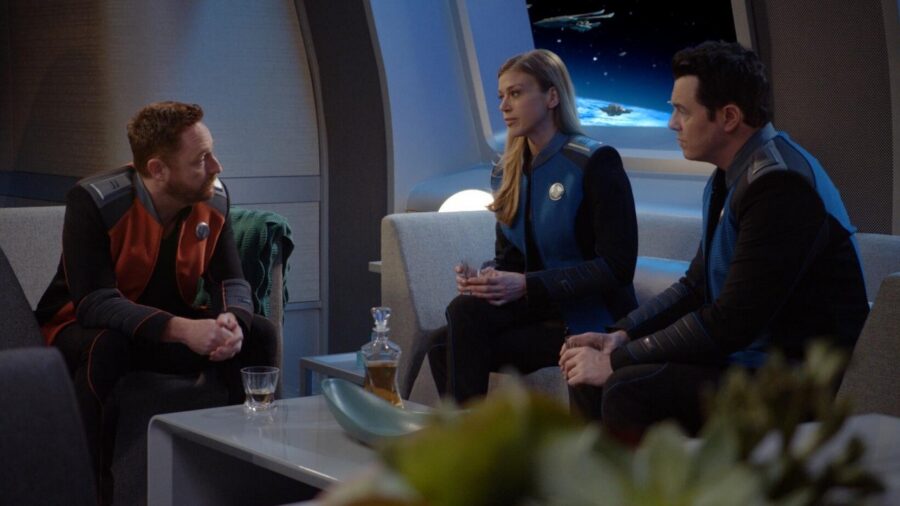The author Jonathan Klotz
| Published

Orville It may have originally been marketed as a Star Trek parody by a guardian Family guySeth MacFarlane, but by the time a third season finally aired in 2022, it had long since become one of the best sci-fi shows of the decade. Season 3's sixth episode, “Twice in a Lifetime,” proved that a series that includes a discussion about aliens piloting urinals can reach emotional highs that most shows never reach. To this day, fans debate the ending of the episode and whether our heroes really made the right decision.
Twice in a lifetime

“Twice in a Lifetime” is a Gordon (Scott Grimes)-centric episode that serves as a sequel Orville Season 2 highlight, “Lasting Impressions”. Back then, Gordon created a holographic program based on information from a phone that was placed in a time capsule in Saratoga Springs, New York, back in 2015. The woman, Laura Huggins (Leighton Meester), becomes the woman of Gordon's dreams, and he falls in love with his digital pastime, but eventually lets her go.
The second time, instead of falling in love with the digital version of Laura, Gordon finds himself sent back in time thanks to Aronov's device, which once again tampers with the time stream. In 2015, abandoned Gordon searches for the real Laura Huggins, meets her, falls in love again, has children with her and lives his ideal life. Orville, on a mission to save Gordon before he destroys the timeline, lands in 2025, where Ed (Seth MacFarlane) and Kelly (Adrianne Palicki) confront their navigator.
An act of treason

Orville Really hit its stride when the stories began to focus on the characters and play less with sci-fi tropes, but here, producer Brannon Bragg, the man responsible for some Star Trek: future generations best episodes, it's a perfect mix of both. Twice in a Lifetime has no real villain and culminates in a heated debate between Gordon, trying to argue about this perfect life, and Ed and Kelly, insisting that the timeline must be preserved.
Given how the second season finale plays out, it's ironic that Ed and Kelly take the stance they do, especially since Gordon explains that he spent three years alone in the desert, avoiding any human contact to help keep time. schedule intact. In a different series, Ed and Kelly would have ultimately won over Gordon with a superior, logical argument about multiple needs. But Orville is constructed differently, and the real solution is a shocking, heartbreaking act of betrayal.
Orville is refueled and ready to jump through time again. Flashing back to 2015, before Gordon met Laura, and picking her up from the desert after only four months away, this version of Gordon is happy to be back. 2025 Gordon returned to his family, hugged them, told them he loved them, and enjoyed a few moments before they were all removed from the timeline when 2015 Gordon was sent back to 2422. There, Ed and Kelly explain 2015. Gordon, what had really happened, how he found Laura and how he lived his dream life in the past.
No one is right and no one is right

There is a significant number Orville fans who see Ed and Kelly as villains because they took Gordon away from his perfect life and then told him about it only to make him feel the loss again for the first time when they return/come back in time. Given their past timeline adventures that changed the future twice, it seems hypocritical and cruel to do this to Gordon.
Seth MacFarlane has continued to record interviews and appearances because, according to him, we never saw the life that Laura would have had Gordon not appeared in the past. Was her life better, or did Gordon's arrival change her future and take her down a completely different path? The worst part about MacFarlane's take is also what makes Orville so good that he's right, but it feels wrong, and that moral conundrum is what makes the series so compelling years later.
There are other episodes Orvilleespecially both parts of 'Identity', which are anyone's favourites, but nothing as harsh as 'Twice in a Lifetime'. Gordon, the comic relief character who covers up his insecurities with alcohol, was rarely in the spotlight, and when he was, Scott Grimes made sure to give a hell of a performance in every scene, and as a result, he gave us one of his best. science fiction time travel episodes ever made.
Source link











